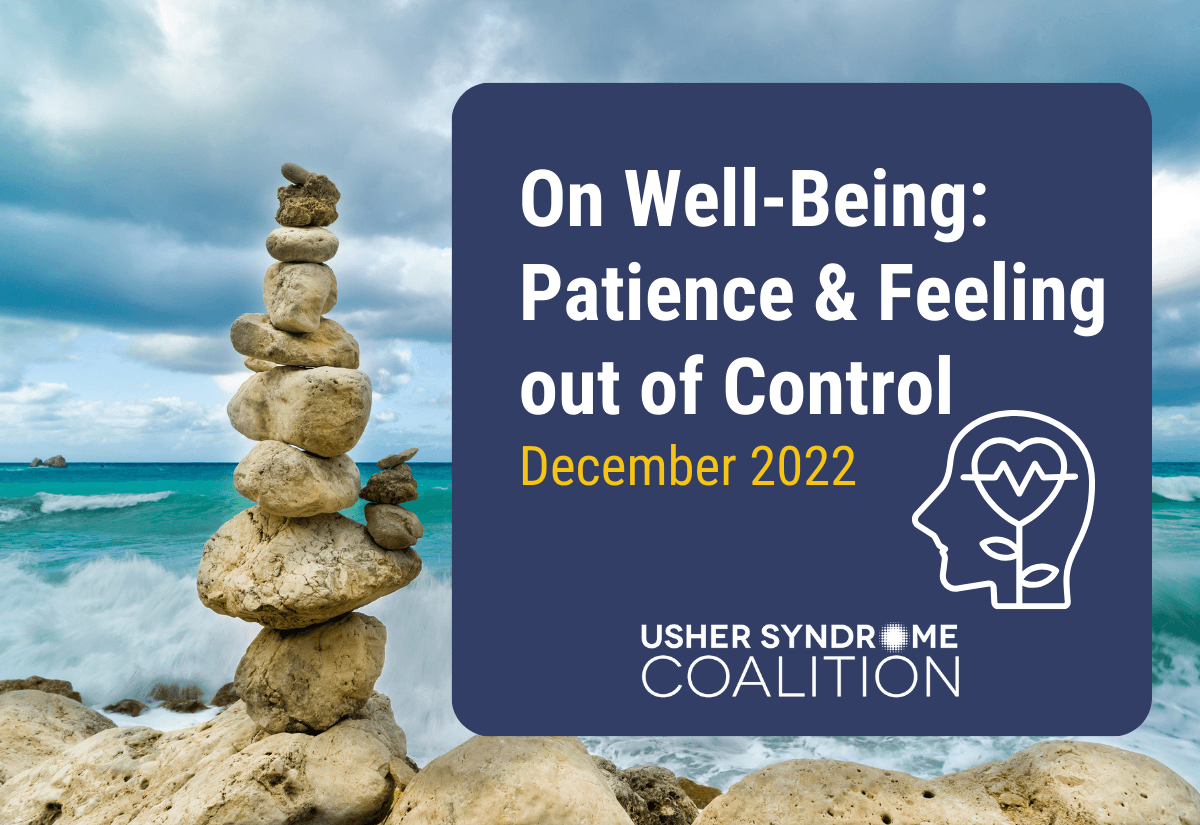
With the year 2022 coming to a close, it's important to take moments to pause and breathe. It’s easy to get overwhelmed with everything that the end of the year can bring. It may help to ask yourself, “What can I do at this moment to make things a little better?”
The Merriam-Webster dictionary defines patience as, “bearing pains or trials calmly or without complaint”.
People with Usher syndrome can sometimes feel a lack of patience or control as they experience unpredictable hearing and vision loss while knowing there is not yet a treatment or cure. Learning the art of patience is not easy, but it can be fulfilling.
Learning patience is vital to overcoming the fears surrounding feeling out of control.
We can’t control other people; we can’t control the rate at which research progresses; we can’t control the rate at which we experience greater vision or hearing loss, we can’t control our mother-in-law’s persistent requests for dinner.
We CAN control how we choose to respond to feelings of frustration and lack of control. If we allow ourselves to slow down, pause, and breathe, we discover that we have the ability to regain a sense of control by making conscious and well-thought-out decisions about our reactions and responses. We can even take time to develop and practice proactive responses to situations that we anticipate may arise during family gatherings and holiday celebrations.
We can understand that research is a long, slow process, and be patient as the work continues. But rather than sitting on the sidelines helpless, we CAN take active measures within our control, like participating in the Usher Syndrome Data Collection Program, as well as sharing this information with friends and family living with Usher syndrome.







